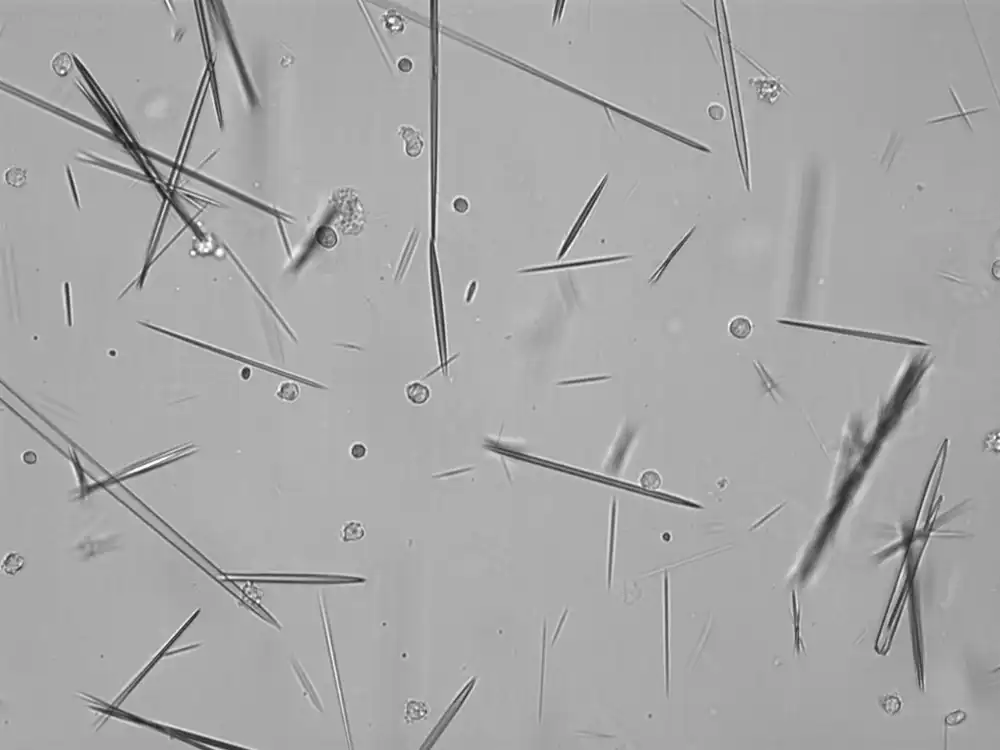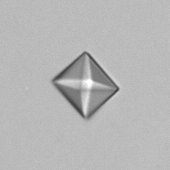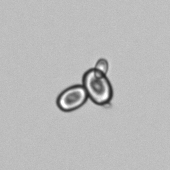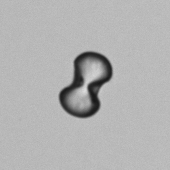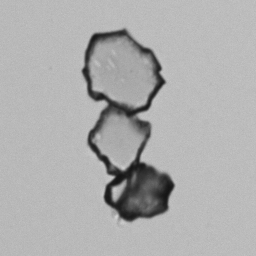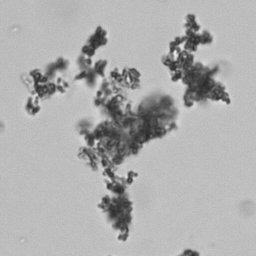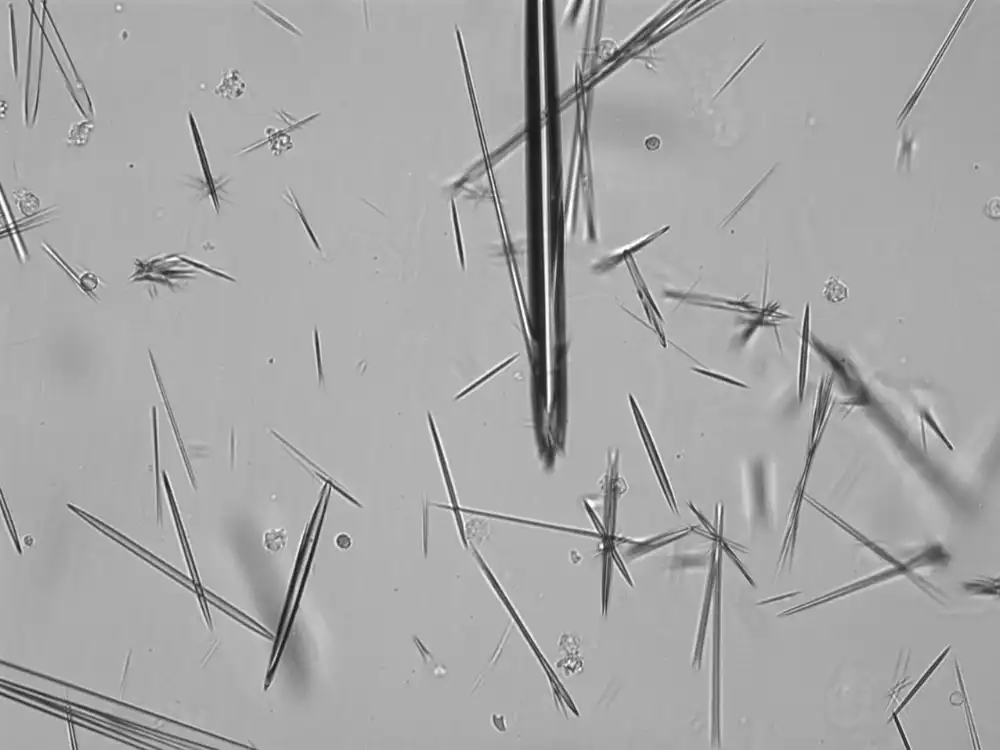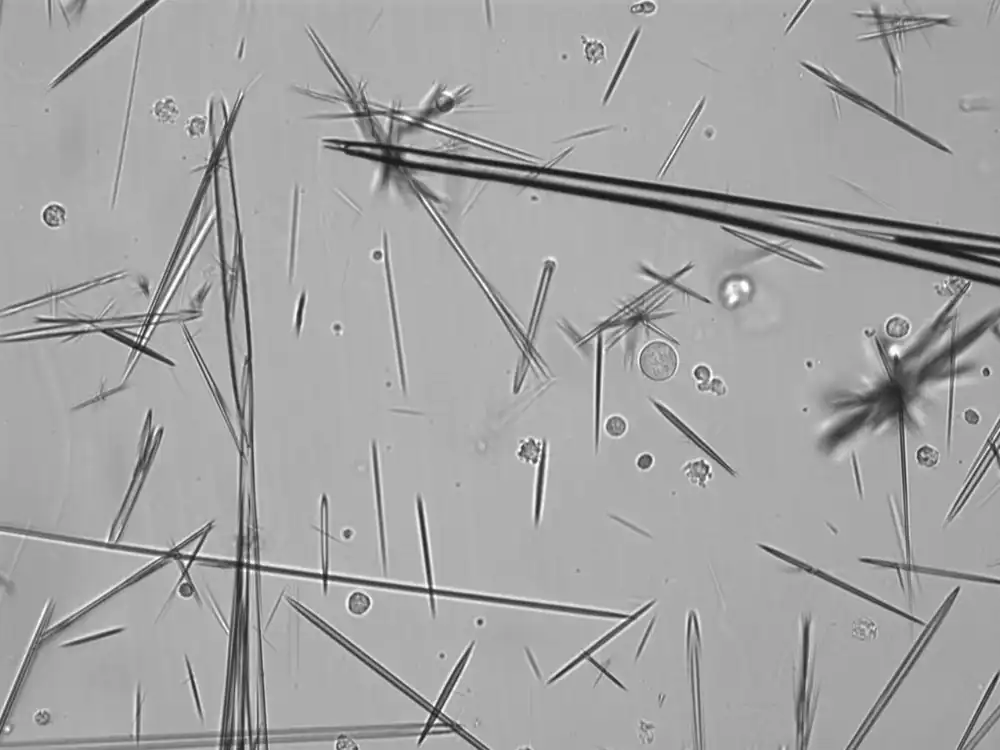Aciclovir
Pathological
Aciclovir is an antiviral agent that is converted intracellularly to aciclovirtriphosphate, an inhibitor of viral DNA polymerase, blocking viral DNA synthesis and replication. At high doses - especially with intravenous administration - combined with dehydration or impaired renal function, aciclovir crystals may form in the urine. These are colorless, short, needle- to rod-shaped, strongly birefringent, and can have either blunt or sharp ends. When they are abundant, the urine takes on a silky, opal appearance.
Crystalluria due to aciclovir may be asymptomatic but also lead to acute, usually reversible, renal insufficiency. The crystals may be accompanied by hematuria and leukocyturia. Because several substances can form needle-shaped crystals (such as ampicillin or tyrosine), it is essential to check the patient's medication history when interpreting such urinary findings. Remarkably, aciclovir crystals are among the few that can also be found in alkaline urine.
Overview
